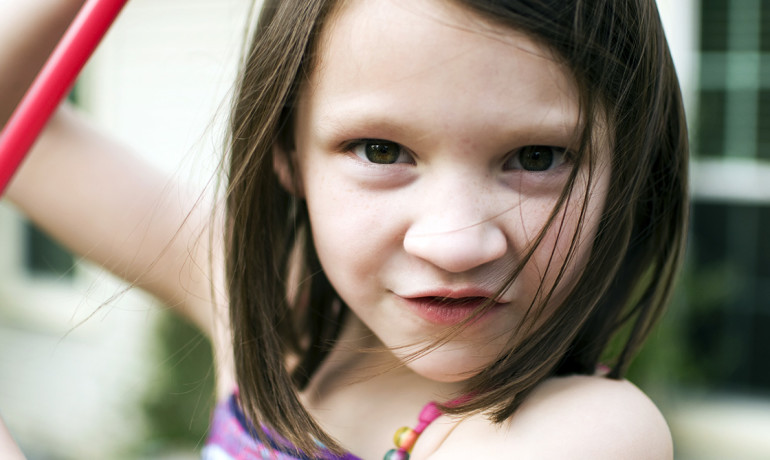When children expect aggression from others, it may cause them to be overly aggressive themselves, a new study finds.
While the pattern is more common in some cultures than others, a four-year longitudinal study involving 1,299 children and their parents finds it is true in 12 different cultural groups from nine countries around the globe.
The findings have implications for dealing not only with the problem of aggressive behavior in individuals, but also for better understanding of large-scale, long-standing cross-group conflicts such as the Arab-Israeli clash and racial strife in the United States, researchers say.
A MORE PEACEFUL WORLD
“Our study identifies a major psychological process that leads a child to commit violence,” says Kenneth A. Dodge, director of the Center for Child and Family Policy at Duke University and lead author of the study published online in the Proceedings of the National Academy of Sciences.
“When a child infers that he or she is being threatened by someone else and makes an attribution that the other person is acting with hostile intent, then that child is likely to react with aggression. This study shows that this pattern is universal in every one of the 12 cultural groups studied worldwide.
“Our research also indicates that cultures differ in their tendencies to socialize children to become defensive this way, and those differences account for why some cultures have children who act more aggressively than other cultures,” he says.
“It points toward the need to change how we socialize our children, to become more benign and more forgiving and less defensive. It will make our children less aggressive and our society more peaceful.”
PERCEIVED AGGRESSION
Participants in the study were from Jinan, China; Medellin, Colombia; Naples, Italy; Rome, Italy; Zarqa, Jordan; the Luo tribe of Kisumu, Kenya; Manilla, the Philippines; Trollhattan/Vanersborg, Sweden; Chiang Mai, Thailand; and Durham, N.C., in the United States (which included African-American, European-American, and Hispanic communities). Children were 8 years old at the start of the study.
Researchers measured children’s levels of aggressive behavior by collecting observations from the children and their mothers. Children also were asked to respond to hypothetical vignettes that might involve someone acting with hostility toward them—someone bumping them from behind and causing them to step into a puddle of water, for example.
Based on their answers, researchers rated whether the children interpreted ambiguous acts as hostile or non-hostile and whether they would escalate a conflict into aggression. Some children in each culture displayed a regular pattern called “hostile attributional bias.”
The result in all 12 cultures was that when children believed an act was the result of hostile intent, they were more likely to react aggressively. In fact, on average, they were five times more likely to do so than children who accepted the act as non-hostile. Children who had acquired a hostile attributional bias were more likely than other children to grow in the rate and severity of their aggressive behavior across the four years of the study.
EXPANDED GOLDEN RULE
Most importantly, the cultures that had the highest rates of hostile attributional bias, such as Zarqa, Jordan, and Naples, Italy, also had the highest rates of child aggressive behavior problems. Cultures that had the lowest rates of hostile attributional bias, such as Trollhättan, Sweden, and Jinan, China, also had the lowest rates of child aggressive behavior problems.
RELATED ARTICLES
ON FUTURITY
boy_reading_525
Johns Hopkins University
Dyslexia: Not the only reading disorder
girl in red sweater looks very tired
McGill University
Children's sleep quality matters for school
"When people feel they have no control over the outcome of a game, that leads to aggression," says Richard Ryan. "We saw that in our experiments. If you press someone's competencies, they'll become more aggressive, and our effects held up whether the games were violent or not." (Credit: mybroetchen/Flickr)
University of Rochester
Losing, not violent content, triggers video game rage
The findings suggest that a key way to prevent aggressive behavior both within and across cultures may be to socialize children to think differently about their interactions with others.
“The findings point toward a new wrinkle to the Golden Rule,” Dodge says. “Not only should we teach our children to do unto others as we would have them do unto ourselves, but also to think about others as we would have them think about us.
“By teaching our children to give others the benefit of the doubt, we will help them grow up to be less aggressive, less anxious, and more competent.”
Fuente: www.futurity.org
